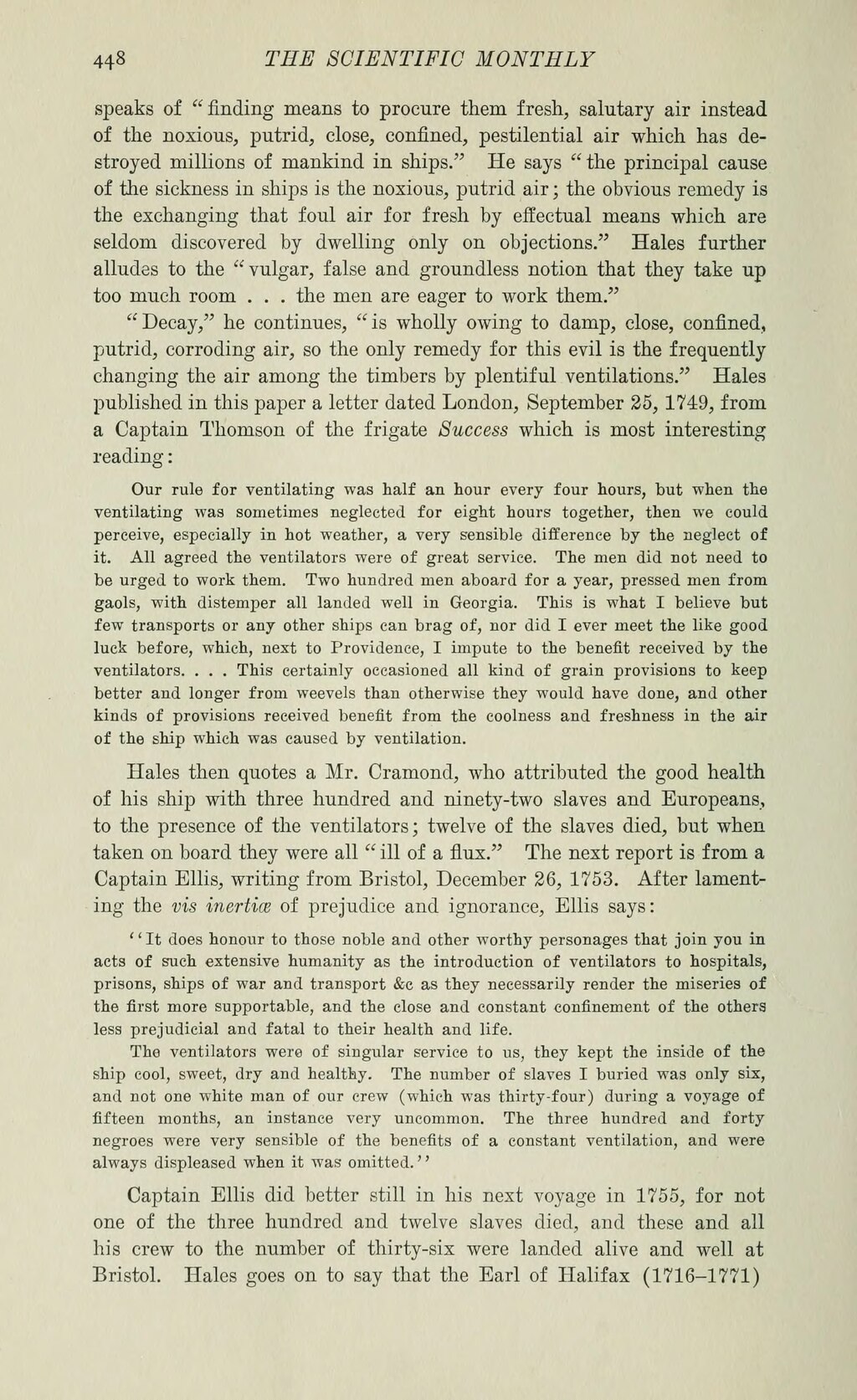448 THE SCIENTIFIC MONTHLY
speaks of ^'finding means to procure them fresh, salutary air instead of the noxious, putrid, close, confined, pestilential air which has de- stroyed millions of mankind in ships/' He says ^^ the principal cause of the sickness in ships is the noxious, putrid air ; the obvious remedy is the exchanging that foul air for fresh by effectual means which are seldom discovered by dwelling only on objections/* Hales further alludes to the vulgar, false and groundless notion that they take up too much room . . . the men are eager to work them/'
" Decay,'* he continues, " is wholly owing to damp, close, confined, putrid, corroding air, so the only remedy for this evil is the frequently changing the air among the timbers by plentiful ventilations/' Hales published in this paper a letter dated London, September 25, 1749, from a Captain Thomson of the frigate Sitccess which is most interesting reading :
Oar rule for ventilating was half an hour every four hours, but when the ventilating was sometimes neglected for eight hours together, then we could perceive, especially in hot weather, a very sensible difference by the neglect of it. AU agreed the ventilators were of great service. The men did not need to be urged to work them. Two hundred men aboard for a year, pressed men from gaols, with distemper all landed well in Georgia. This is what I believe but few transports or any other ships can brag of, nor did I ever meet the like good luck before, which, next to Providence, I impute to the benefit received by the ventilators. . . . This certainly occasioned aU kind of grain provisions to keep better and longer from weevels than otherwise they would have done, and other kinds of provisions received benefit from the coolness and freshness in the air of the ship which was caused by ventilation.
Hales then quotes a Mr. Cramond, who attributed the good health of his ship with three hundred and ninety-two slaves and Europeans, to the presence of the ventilators ; twelve of the slaves died, but when taken on board they were all " ill of a flux." The next report is from a Captain Ellis, writing from Bristol, December 26, 1753. After lament- ing the vis inerticB of prejudice and ignorance, Ellis says:
- * It does honour to those noble and other worthy personages that join you in
acts of such extensive humanity as the introduction of ventilators to hospitals, prisons, ships of war and transport &c as they necessarily render the miseries of the first more supportable, and the close and constant confinement of the others less prejudicial and fatal to their health and life.
The ventilators were of singular service to us, they kept the inside of the ship cool, sweet, dry and healthy. The number of slaves I buried was only six, and not one white man of our crew (which was thirty-four) during a voyage of fifteen months, an instance very uncommon. The three hundred and forty negroes were very sensible of the benefits of a constant ventilation, and were always displeased when it was omitted."
Captain Ellis did better still in his next voyage in 1755, for not one of the three hundred and twelve slaves died, and these and all his crew to the number of thirty-six were landed alive and well at Bristol. Hales goes on to say that the Earl of Halifax (1716-1771)
�� �
